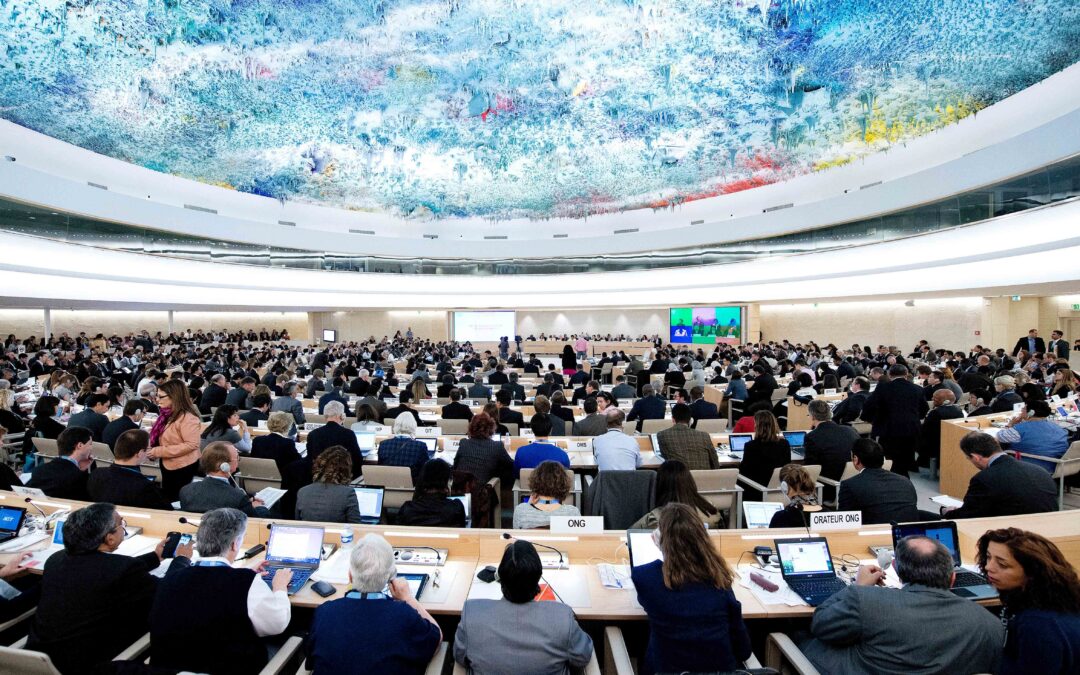
Sep 22, 2020 | Advocacy, News
States should help pave the way towards credible accountability and redress for the people of Yemen by renewing and strengthening international investigations into war crimes, other serious violations of international humanitarian law, and grave human rights abuses during this 45th Session of the HRC, the ICJ and 23 other organizations said today.
Yemen is suffering from an “acute accountability gap,” according to the UN Group of Eminent Experts (GEE) on Yemen, which released its third report on September 9, 2020.
With COVID-19 threatening the lives and livelihoods of millions across Yemen, peace talks floundering, and airstrikes, shelling and attacks impacting civilians once again increasing, the reality for millions of Yemeni civilians is growing ever more bleak.
This session, the Human Rights Council has the opportunity to pave the way towards credible accountability and redress for victims and survivors in Yemen.
People in Yemen have experienced grave abuses since the conflict began in 2014, when Ansar Allah (the Houthi armed group) and military units loyal to former president Ali Abdullah Saleh took control of the capital, Sana’a, and escalated in 2015 when the Saudi/UAE-led coalition militarily intervened on the side of the Yemeni government.
With the conflict in its sixth year, millions of Yemenis are without adequate food, water, shelter or healthcare. The parties to the conflict impede the flow of life-saving goods into and around the country, attack critical infrastructure, and misdirect goods and their revenues to their own coffers and loyalists.
Thousands of civilians have been killed, wounded and otherwise harmed by airstrikes that violate international humanitarian law, indiscriminate shelling and the use of banned anti-personnel landmines.
The societal fabric has torn, with expression, speech, peaceful protest and movement increasingly restricted, and political and other identity-based divisions weaponized by those in power.
The human rights and humanitarian catastrophe in Yemen is man-made, and was avoidable. The parties to the conflict continue to hold the vast majority of power in and over Yemen.
For Yemen’s trajectory to change, the behavior of the parties to the conflict and their backers needs to change. As of September 2020, perpetrators have gone unpunished, states responsible for violations have faced no real consequences, parties have rarely acknowledged fault or taken measures to protect civilians, suppliers keep the arms used for international humanitarian law violations, and victims have been denied justice and redress.
In 2017, the Council established the GEE to report on violations of international law in Yemen and, where possible, to identify those responsible. The Council renewed the GEE’s mandate in 2018 and 2019, despite opposition from the Saudi/UAE-led coalition.
In its third report, the UN experts found the international community “can and should” do more to “help bridge the acute accountability gap” in Yemen.
The experts provided a list of specific recommendations, including for the Security Council to refer the situation in Yemen to the International Criminal Court and to expand the list of persons subject to Security Council sanctions.
The GEE supported the establishment of an investigative body, similar to the International, Impartial and Independent Mechanism for Syria, and specifically called on the Council to ensure the situation of human rights in Yemen remains on its agenda, including by ensuring adequate resources are provided to the GEE for the collection, preservation and analysis of information related to violations and crimes.
In the longer term, the Group encouraged “further dialogue about the creation of a special tribunal such as a ‘hybrid tribunal’ to prosecute cases of those most responsible,” reiterated the importance of victims’ right to a remedy, including reparations, and called for human rights to be “at the heart of any future peace negotiations,” including that “no steps are taken that would undermine respect for human rights and accountability, such as granting blanket amnesties.” 2
The GEE also reiterated concerns that states supplying arms to parties to the conflict, including to Saudi Arabia and the UAE, may be violating their obligations under the Arms Trade Treaty, and that this support may amount to aiding and assisting internationally wrongful acts.
Today, 24 Yemeni, regional, and international civil society organizations, including the ICJ, came together to call on the Council to endorse the GEE’s report, including its findings on accountability, and to take concrete steps this Council session to pave the way towards credible justice for Yemen.
The 24 organizations are calling on the Council to renew and strengthen the GEE’s mandate this September, including to collect, consolidate, preserve and analyze evidence related to, and clarify responsibility for, the most serious crimes under international law and violations of international law committed in Yemen since 2014.
The organizations are also calling on the Council to task the GEE with issuing a special report advising states on practical steps they can take to help ensure justice and redress for the tens of thousands of Yemeni civilians unlawfully harmed by the warring parties throughout this conflict.
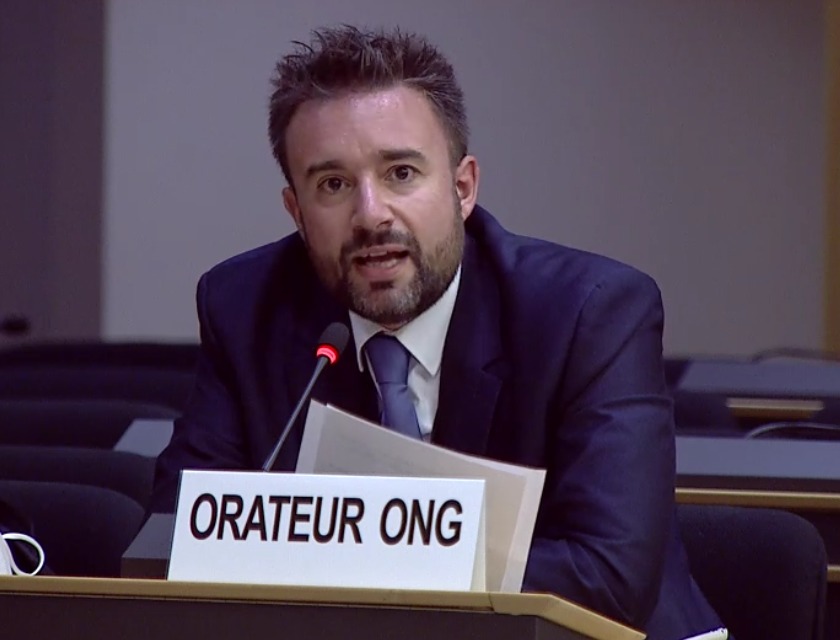
Sep 21, 2020 | Advocacy, Non-legal submissions
At the interactive dialogue with the Working Group on Enforced and Involunatary Disapparances during the UN Human Rights Council in Geneva, the ICJ has called on Tajikistan and Turkey to comply with the recommendations by the Working Group and to end practices of abduction and forced return.
The Chair of the Working Group on Enforced and Involuntary Disapperances in his replies to the questions pressed Turkey to implement the recommendations of the Working Group’s report.
The oral statement read as follows:
Mr Vice-President
The International Commission of Jurists (ICJ) welcomes the report by the Working Group on the follow up of its recommendations on its visit to Turkey (A/HRC/45/13/Add.4) and shares its concerns at the lack of implementation by the Turkish authorities and at the State-sponsored practice of “abductions and forced returns” (para 8). The ICJ agrees with the Working Group that a critical factor that fosters impunity in Turkey is “the lack of judicial independence and impartiality” (para 17).
The ICJ also welcomes the Working Group’s report on Tajikistan (A/HRC/45/13/Add.1). The ICJ shares its concern at the forcible return of Tajikistan nationals to the country, involving enforced disappearances (para 53), the harassment of lawyers (para 9) including the lengthy imprisonment of Buzurgmehr Yorov and Nuriddin Makhkamov, the obstruction of lawyers’ access to detainees, and inadequate judicial review of detention (para 47).
The ICJ urges both countries to fully implement the recommendations of the Working Group and particularly:
- on Tajikistan, to end forced return of their nationals, and to ensure prompt and confidential access to lawyers for detainees and prompt and independent judicial review of detention.
- on Turkey, to stop all practices of abduction and forced return from other countries and to restore the independence of its judiciary.
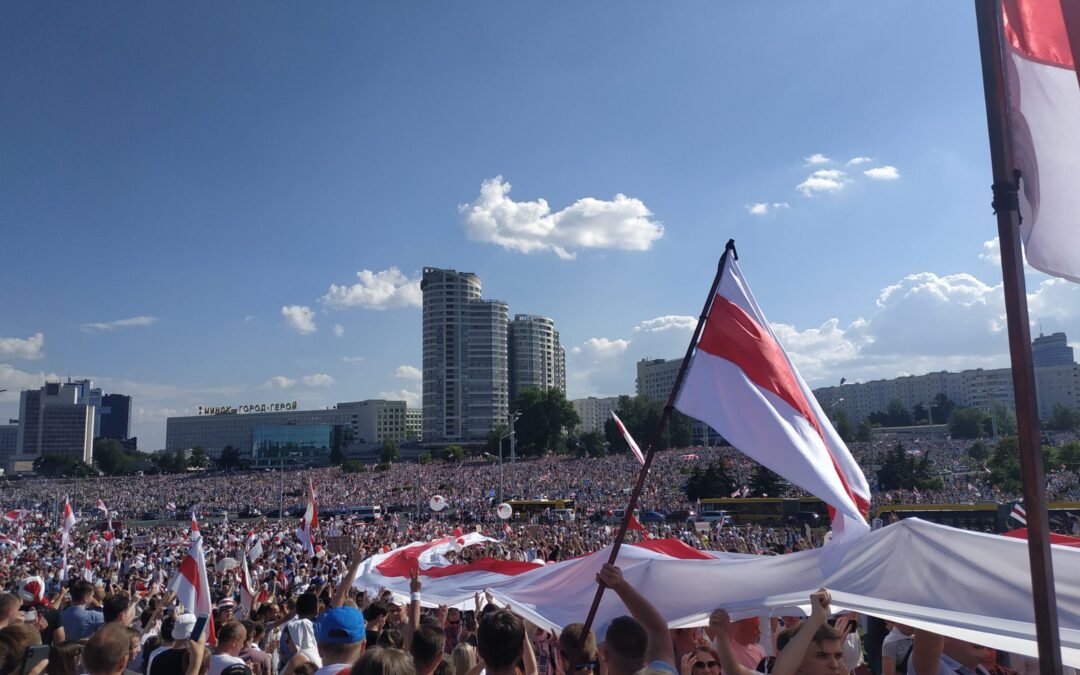
Sep 18, 2020 | Advocacy, Non-legal submissions
At a special session of the UN Human Rights Council in Geneva, the ICJ and IBAHRI have called on Belarus to comply with its international human rights obligations, including by releasing those arbitrarily detained and ceasing abusive prosecutions as well as harassment of lawyers.
The oral statement read as follows:
“Madame President,
The International Commission of Jurists (ICJ) and the International Bar Association’s Human Rights Institute (IBAHRI) are concerned at the continuing human rights violations in Belarus following the Presidential election. Widespread arbitrary arrests, police violence against peaceful protesters, torture and other ill-treatment of detainees and allegations of enforced disappearances, violate Belarus’s international law obligations, and require accountability.
Our organizations are particularly concerned about reports that these violations are accompanied by widespread denial of detainees’ access to a lawyer. Lawyers face harassment and obstacles in carrying out their professional duties.
We highlight the recent arrests and detention of two prominent lawyers, Ilya Salei and Maxim Znak, on politically motivated charges on 9 September 2020. According to official information, the lawyers are charged with the crime of “calls for actions aimed at causing harm to the national security of the Republic of Belarus”.
We urge the Council to call on Belarus to:
- comply with its international human rights obligations, including by releasing those arbitrarily detained and ceasing abusive prosecutions;
- provide detainees with confidential access to lawyers of their choice;
- end harassment of lawyers and ensure accountability and reparations for those whose human rights have been violated; and
- request OHCHR to monitor and report to the Human Rights Council on the human rights situations in Belarus.
Thank you”
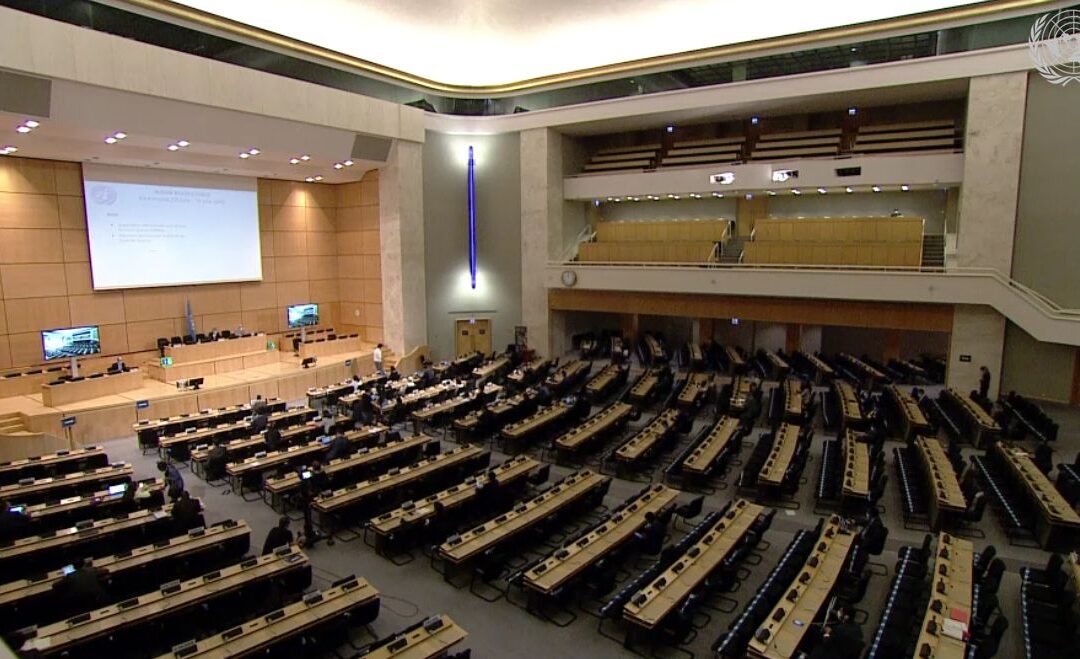
Sep 17, 2020 | Advocacy, Non-legal submissions
At the Human Rights Council, the ICJ highlighted deepening impunity for gross human rights violations in Sri Lanka, and the need for a UN investigative mechanism.
The oral statement was made in the interactive dialogue with the UN Special Rapporteur on the promotion of truth, justice, reparation and guarantees of non-recurrence, at which the current Rapporteur presented the report of his predecessor, Pablo de Greiff, on a visit to Sri Lanka in 2017.
The statement read as follows:
“The ICJ welcomes this opportunity to discuss the report of your predecessor’s 2017 visit to Sri Lanka.
We share the report’s assessment that “none of the constituent elements of a transitional justice policy are fully in place.” Indeed, the situation has only further deteriorated since 2017, further entrenching the denial of justice to victims.
Sri Lankan courts remain unable and unwilling to address the impunity of security forces for crimes under international law. We echo the report’s observation ‘in its current state, the criminal justice system in Sri Lanka is inadequate and flawed’.
This will only worsen if the proposed 20th Amendment to the Constitution is passed. The President, himself credibly accused of war crimes and crimes against humanity during his tenure as Defence Secretary from 2005-2015, would have unilateral power to appoint the judges of the superior courts, the Judicial Service Commission, Attorney General and the Inspector General of Police. This would further undermine any independence and impartiality in the already institutionally weakened judiciary.
Given the abject failure of Sri Lanka to implement a credible accountability mechanism, and its ongoing betrayal of the rule of law, the ICJ calls on the Council to establish an international accountability mechanism, and we urge you Mr Special Rapporteur to closely monitor and analyze the country situation in coordination with other mandate holders.
Thank you”

Sep 15, 2020 | Advocacy, Non-legal submissions
At the UN Human Rights Council in Geneva, the ICJ has urged States to ensure human rights and avoid discriminatory impacts, and for businesses to respect their human rights responsibilities, in responding to the COVID-19 pandemic.
The oral statement, delivered in a general debate on the update of the High Commissioner for Human Rights, read as follows:
“In our latest report, Living Like People Who Die Slowly: The Need for Right to Health Compliant COVID-19 Responses,[1] the International Commission of Jurists (ICJ) calls on States to ensure that their individual and collective responses to the COVID-19 pandemic comply with international human rights law, including the right to health.
Any abuse of pandemic measures to repress human rights defenders, dissenting voices, or civil society more generally, is unacceptable. Respect for freedom of expression, including the right to information, is essential to effectively addressing the pandemic.
The particularly acute impact of COVID-19 on already-marginalized people heightens the importance of equal access to health facilities, goods and services. The report documents disproportionate impacts on non-citizens, older persons, women and girls, LGBT persons, persons deprived of their liberty, persons with disabilities, sex workers and healthcare workers.
Businesses, and particularly private actors in the healthcare sector must meet their responsibility to respect human rights. This will be crucial in the development, production and distribution of any COVID-19 vaccine.
Madame President, the ICJ emphasizes the continuing importance and applicability of the 1984 Siracusa Principles on the Limitation and Derogation Provisions in the International Covenant on Civil and Political Rights,[2] and the recognition in the WHO International Health Regulations that implementing measures must be fully consistent with human rights.”
[1] https://www.icj.org/icj-new-global-report-shows-that-the-right-to-health-must-be-central-to-state-responses-to-covid-19/ (1 September 2020).
[2] https://www.icj.org/siracusa-principles-on-the-limitation-and-derogation-provisions-in-the-international-covenant-on-civil-and-political-rights/ and UN Doc E/CN.4/1985/4, Annex.
The full range of materials produced by the ICJ concerning the COVID-19 pandemic can be accessed at: https://www.icj.org/human-rights-in-the-time-of-covid-19-front-and-centre/
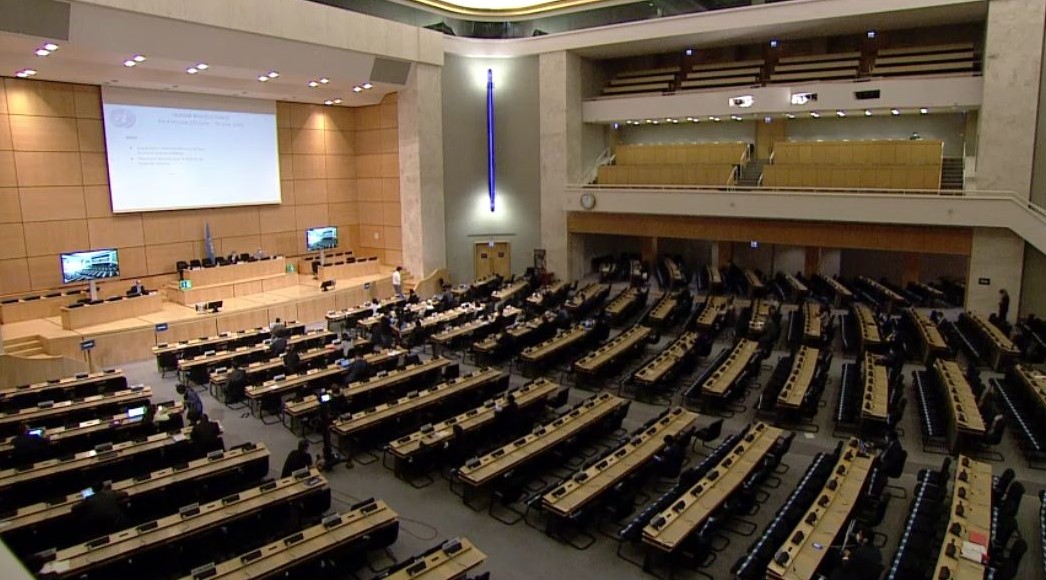
Sep 14, 2020 | Advocacy, Non-legal submissions
In a statement to the UN Human Rights Council in Geneva, the ICJ has welcomed the report of the Independent Investigative Mechanism for Myanmar (IIMM)
The oral statement was delivered in an interactive dialogue with the IIMM, and read as follows:
“The ICJ salutes the Mechanism in setting up the necessary infrastructure for its operation despite the challenges brought about by the COVID-19 pandemic. Given the lack of genuine and independent domestic investigation and prosecution of serious human rights violations in Myanmar, the efficient establishment of the Mechanism is welcomed.
The ICJ shares its concern over the Government of Myanmar’s lack of cooperation with the Mechanism. The ICJ recalls Myanmar’s obligation to ensure accountability for serious human rights violations occurring in Myanmar, including, but not limited to, the acts against ethnic Rohingya that were the subject of the report of the Government-appointed Independent Commission of Enquiry.
Given the Mechanism’s mandate to gather and preserve evidence of any serious human rights violations committed in Myanmar from 2011 to the present, the ICJ underscores the need to investigate the widely reported accounts of killings, serious physical injury, mass displacement and destruction of property in various parts of Rakhine and Chin states in the context of the ongoing conflict between Myanmar and the Arakan Army. The Myanmar Government still refuses to hold a ceasefire despite the onset of the COVID-19 pandemic in Rakhine. The parties to the conflict must be held accountable for any violation of international human rights and humanitarian law.
The ICJ would like to ask: how can States and inter-governmental organizations strengthen support for the mandate?”
For more information, contact: Kingsley Abbott, kingsley.abbott(a)icj.org










